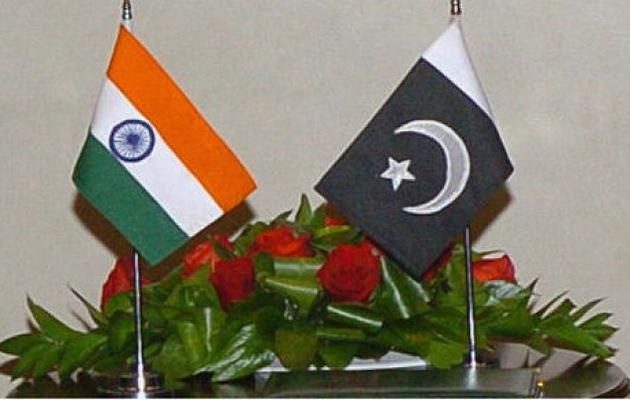By Kadayam Subramanian
Indian Foreign Minister Sushma Swaraj, who participated in the ‘Heart of Asia’ conference (December 8-10) in Islamabad along with other official representatives from Central and West Asia to debate the ‘stabilization’ of Afghanistan, has announced that India and Pakistan would be embarking on an unconditional ‘comprehensive bilateral dialogue’ (CBD) process to resolve their differences.
This amounted to huge climb-down and setback for the tough-talking Indian Prime Minister who had laid down the following conditions for the NSA-level Indo-Pak bilateral dialogue process which was scheduled for August 23-24:
- The dialogue should deal only with terrorism
- Kashmir question should not be discussed
- Kashmiri separatist All-Party Hurriyat Conference should not be involved.
- Pakistan refused to accept these conditions and the proposed NSA-level dialogue process in August was scrapped.
- What did the Indian Prime Minister then suddenly change his mind and agree to go ahead on the dialogue process with Pakistan without pre-conditions?
- It is appears the Prime Minister of Pakistan and his army chief during their recent discussions with US President Barack Obama on the peace process in Central Asia and Afghanistan, brought out the difficulties Pakistan faced from Indian intelligence operations in their country and its military and financial support, in collaboration with a faction of the Afghan intelligence agency to destabilise Pakistan. Dossiers in this connection were provided to the US authorities. The US President was requested to persuade the Indians to come to the negotiating table to discuss disputed issues with Pakistan.
- In what would seem a significant victory for Pakistan, President Obama did take up the matter at least twice with the Indian Prime Minister including the one on the side lines of the UN General Assembly meeting in September 2015 and advised him to re-start the stalled Indo-Pak dialogue process. This was in the strategic interest of the US in conflict-affected Central Asian region.
- The intriguingly long handshake between the Indian and Pakistani Prime Ministers at the COP 21 Climate Conference at Paris (December 1), widely covered in the Indian media, must be seen in this context.
- In a quick follow-up, the National Security Advisors (NSAs) of the India and Pakistan met at Bangkok on December 6 and issued a joint statement about the resumption of Indo-Pak bilateral dialogue on peace, security, terrorism, Jammu and Kashmir and tranquility along the Line of Control (LOC) and other issues including ‘religious tourism’.
- Sushma Swaraj, the Indian Foreign Minister, was deputed to the Islamabad conference on the ‘Heart of Asia’ (December 8-10).
- Some significant changes occurred in Islamabad as well. The army Chief General Raheel Sharif moved centre-stage on Pakistan’s external affairs.
- His close colleague, Lt. General Nasir Khan Janjua displaced Sartaj Aziz as Pakistan’s National Security Advisor (NSA).
- Janjua would deal with the Indian NSA Ajit Doval on terrorism-related issues.
- Prime Minister Nawaz Sharif would continue to be focused on political dialogue with India.
- It may be recalled that the Indo-Pak dialogue process had actually started in February 1999 with the Indian Prime Minister Atal Behari Vajpayee’s visit to Islamabad for discussions with Prime Minister Nawaz Sharif which resulted in the Lahore Declaration. Backchannel diplomacy was taken up by the representatives of the two sides. However, the Agra Summit of July 2001 was not successful.
- The backchannel diplomacy continued leading to the evolution in 2004 of the four-point formula agreed upon by the two prime ministers to end the Kashmir conflict. The formula has remained relatively unknown.
- Khurshid Mahmud Kasuri, former Foreign Minister of Pakistan, in his book Neither a Hawk nor a Dove (Penguin/Viking, 2015), has referred to the sustained, painstaking and difficult preparations that are needed for the success of summit-level discussions.
- He defended the framework for settlement evolved through backchannel diplomacy during 2005-2007 and stressed the centrality of diplomacy in Indo-Pak disputes.
- He refers to the former US National Security Advisor Henry Kissinger’s observation that in resolving complex international crises, ‘the test is not absolute satisfaction but balanced dissatisfaction’.
- In this context, the recent terrorist attack in Paris followed by the San Bernardino attack in California has been a matter of serious concern to the US President with fears of the spread of the Islamic State in the Central Asian region. One IS attack has already taken place in Afghanistan lending urgency to the ‘Heart of Asia’ conference in Islamabad.
- The Indian Prime Minister Narendra Modi, assuming power in May 2014, did not evince much interest on security issues in Central Asia. The geographical and political significance of Pakistan in the context of Central Asia is yet to be fully appreciated in New Delhi, where Pakistan is still perceived as a ‘failing state’. However, Pakistan has become of vital interest to the US, Russia and China.
- China has invested billions of dollars on infrastructural development in Pakistan. India would have to rise above its Hindu-Muslim concerns to look at the strategic issues in Pakistan in the context of Central Asia.
- Hindu-Muslim conflict in India has a historical context, which needs to be better appreciated by the Indian political leadership today. It needs to display openness, flexibility and sagacity in its approach to Pakistan.
- ‘Hindutva’ ideologues in India, however, tend to be unresponsive to strategic concerns vital to India in Central Asia. They seem to be negative to the idea of serious negotiations and compromise with Pakistan. They appear to be preoccupied with ‘liberating’ Pakistan-occupied territories in the state of Jammu and Kashmir.
- Their concept of Akhand Bharat’ (undivided India) too makes them restless. This limits ability of India to negotiate and compromise with Pakistan.
- Poor governance, massive corruption scandals, political and social intolerance, violence against minority individuals and agencies, murder of dissident intellectuals and philistinism at the top might hinder the success of the proposed Indo-Pak ‘comprehensive bilateral dialogue’ process.
‘Courtesy Asia Times Online’.


